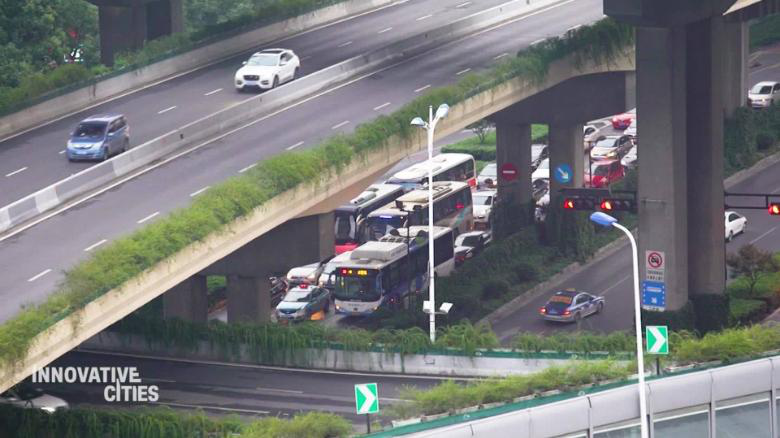
Traffic used to be a frequent headache for people in Hangzhou, the eastern Chinese city that’s home to Alibaba. The city of 7 million people once ranked fifth among China’s most crowded cities, but it has now dropped to 57th on the list.
Alibaba says that’s because of one of its inventions, named the City Brain, which uses artificial intelligence to gather information across Hangzhou, such as video from intersection cameras and GPS data on the locations of cars and buses. The platform analyzes the information in real time as it gets more than 1,000 road signals around the city.
After two years of testing, the system appears to be working. Alibaba says the City Brain has shortened commutes and also helped first drivers by enabling fire trucks and ambulances to halve the amount of time it takes to get to the scene of emergencies. Some regular drivers confirm things have improved. Ye Bojie, who works for top ride-hailing firm Didi Chuxing, said it once took him 40 minutes to drive 3 kilometers (1.8 miles), but the conditions are “much better now”.
“The cities in China probably are facing more challenges than any other city,” said Wang Jian, chairman of Alibaba’s technology committee. But with the technologies like machine learning, communities are getting the tools to solve problems such as water shortages. “Eventually, everything is going to depend on the computing power, just like we depend on electricity,” Wang said.
Alibaba’s platform is being used in a handful of other Chinese cities and was introduced last year in Kuala Lumpur, the capital of Malaysia. Last fall, Volkswagen and Siemens began trials of a smart traffic system in the German city of Wolfsburg, which was aimed at helping drivers predict when to expect a wave of green lights.
本时文内容由奇速英语国际教育研究院原创编写,未经书面授权,禁止复制和任何商业用途,版权所有,侵权必究!(作者投稿及时文阅读定制请联系微信:400-1000-028)
1.What once troubled Hangzhou according to Paragraph 1?
A The frequent headache.
B Its location in China.
C Its large population.
D The terrible traffic jam.
解析:选D。细节理解题。根据第一段的内容可知,曾经让杭州感到困扰的是它可怕的交通拥堵问题,故选D。
2.Which of the following about the City Brain is NOT true?
A It was developed by Alibaba.
B It is based on artificial intelligence.
C It can’t analyze road information in real time.
D It’s making a difference to Hangzhou’s traffic.
解析:选C。细节理解题。根据第二段最后一句The platform analyzes the information in real time as it gets more than 1,000 road signals around the city.可知该系统可以实时分析交通数据。故选C。
3.What do the people in Hangzhou think of the system?
A Useless.
B Troublesome.
C Helpful.
D Terrible.
解析:选C。推理判断题。根据第三段第二句的Alibaba says the City Brain has shortened commutes and also helped first drivers…the scene of emergencies.和该段最后一句的but the conditions are “much better now” 可知“城市大脑”改善了杭州的交通拥堵情况,因此可以推知人们认为这个系统是很有用的。故选C。
4.What was the smart traffic system in Wolfsburg used for?
A Reaching scenes of emergencies.
B Solving the water shortages.
C Providing people with electricity.
D Judging the time of green lights.
解析:选D。细节理解题。根据最后一段最后一句which was aimed at helping drivers predict when to expect a wave of green lights可知沃尔夫斯堡市的智能交通系统会帮助司机判断绿灯的时间。故选D。